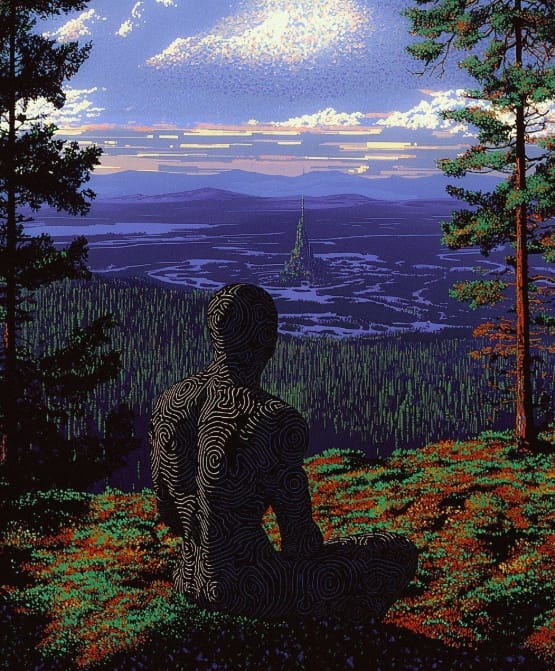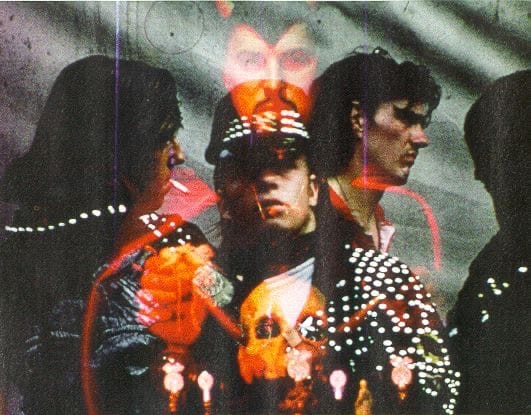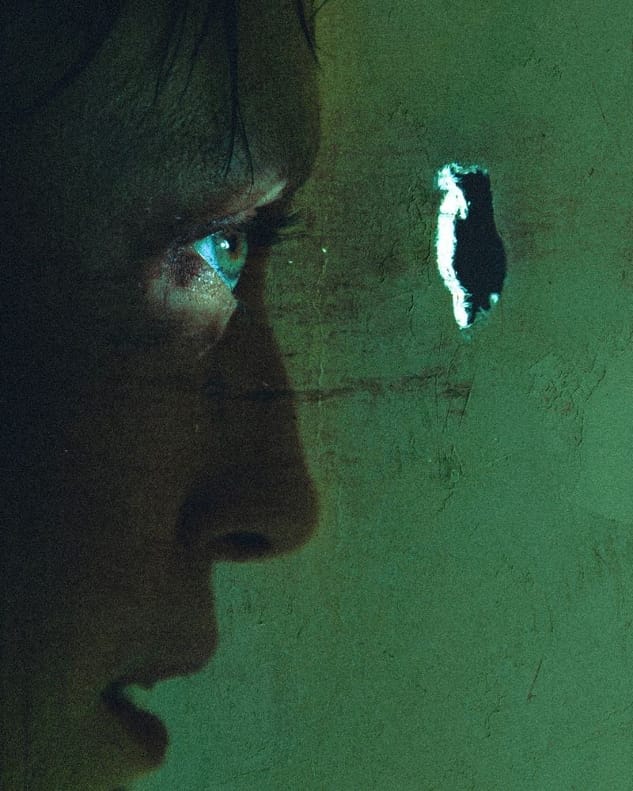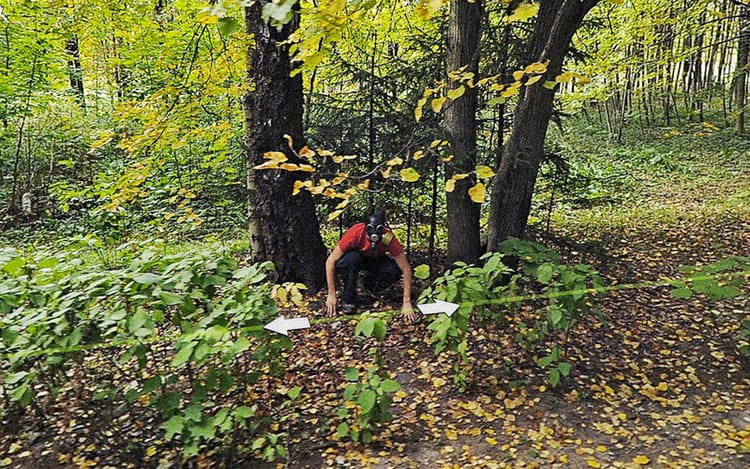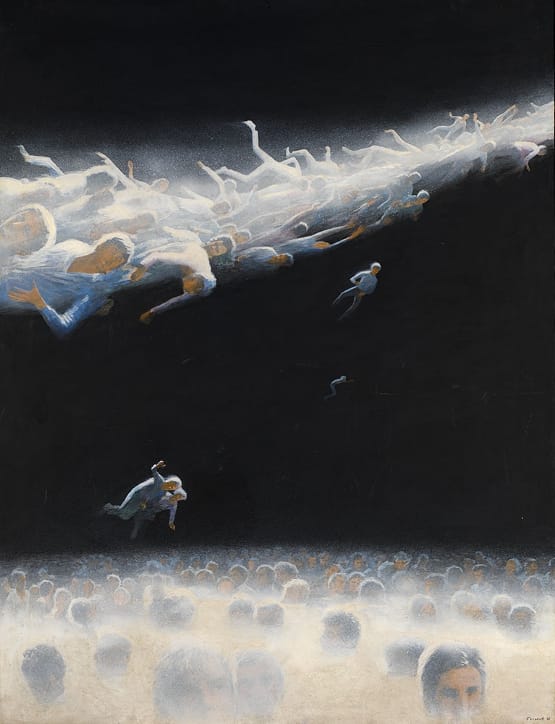Blue Veins

by Swim
My friend Odious is the strongest person I know. Despite all the fucked-up shit that’s happened to them through the years, the betrayals and humiliations and outright violence, they feel what they feel and keep focused on helping others. Even in those dark days of 2017 after they severed their connection to the Prophet Motive and his whole sick scene, they never lost themselves. They had the image of Mica reduced to a “crude rendering of her former glory” stuck in a loop in their mind, but instead of letting it make them crazy they used it to think of her and send her love. In fact, their desire to have greater focus in such imaginings was why they chose to quit smoking weed at that time, struggling with side effects that included nightmares and night sweats and a nearly debilitating brain fog.
“But why right now, right after all this?” I asked them, thinking of all the time I’d squandered on my vices. They were so much younger, surely a little longer wouldn’t matter.
“Why throw away this thing that gives you solace during a time of upheaval?”
“Because it doesn’t give me solace. I think it rewired my nervous system. I can no longer tell the difference between being high and being anxious. When I smoke, I get ideas, I get mad ideas for sure, but they rush at me all at once like a school of slippery fish. I scrawl out what I can, trying to keep up, but in 20 minutes I’m back at the shore, blank and nodding off. I go out like a light, but I never dream.”
“Maybe if I hadn’t been high all the time, I would have realized sooner what was going on and stopped him from hurting Mica and those other women,” they said, to which I could only nod and look away.
They are a gentle force, like the wind in the treetops or millions of gossamer seeds floating across the sky. They have a fluttery voice and long thin arms, blue veins visible through the nearly translucent skin they recently tatted with the word “WISDOM” on the left arm and “COMPASSION” on the right. (“So, I won’t forget,” they explained). Their delicate appearance makes it easy to paint them as being fragile and needy, especially to people like my friends who were biased into believing such things to be inherently true about queer folks. These nosey nobodies wanted to know what was up with me going over there every day, so rather than tell them about the strange feeling I had of being at home when I went there, I told them I was helping poor baby Odious through the apocalypse, when if anything it was the opposite that was true. On several levels it was I who needed their help, which they gave not in the form of philosophical flexing or (god forbid) advice but simply by letting me hang out in the waves of energy that radiated out from them. It was just what they did, automatically, by virtue of who and what they are, in the same way the sun doesn’t choose whether to shine on us, and just shares its light with whomever is in its way.
Their place is very clean and relaxing, I told my friends, eluding to its sweet minimalist design and high-end air purifiers. Later, after the PKD dream, they would get rid of most of it, but in the beginning, it was decorated with simple, well-made Danish furniture for which Odious obviously had a soft spot but was not above making fun of:
“I collect these objects because the skillful tradespeople who made them share a genealogy with my parents, two well-meaning people who wasted their entire lives believing that reality was only what you could see, smell, hear and touch like this table.”
[they leaned over and put their ear against it as they knocked at it from underneath]
“When you get close you can catch a whiff of the wood. And I've licked it once or twice, I'll admit.”
“Wait—I didn’t realize your parents had passed away?”
“Yes…no…I mean, I think they’re still alive but I’m not 100% sure.”
When I wrote earlier about the “strange” feeling I had of being at home at their place, what I meant was that at Odious’ I was very comfortable feeling uncomfortable—unlike when I was in my own apartment and had to immediately eat or drink or watch something when I felt that way. At Odious’ we would have a conversation and then I’d sit in silence with my phone on the other side of the room and think and think and think, but I’d never think my way out of the discomfort, just like when I was growing up.
(Actually, that’s not really it either—being at Odious’ was about telling myself stories from the past and finding out that I couldn’t locate anything real behind the memories, they were just projections on the white screen in my mind. Time slowed down and stopped, and I felt a nostalgia for something that never existed.)
When the lockdown started Odious was still renting out a club as a daytime office space. They’d been there for 6 months before everything shut down, and in those early weeks, when no one was quite sure, they kept paying to keep their usual access, but then the management called and said they were going to shut the whole place down, lights and electricity included.
“It’s so big,” I said, as we walked through the shadowy ballroom on that last day. At first, like a true New Yorker, I believed this excess of space was why they rented it—I pictured them hooking up their music to the rig and getting lost in their epic multimedia WIP, but it turned out that the space itself was a part of the art.
“The physical texts—the writing and music and even the Chatbot are only one aspect of the WIP. The more crucial, ongoing project is dissolving boundaries and hierarchies. A club is one of the best locations for this work. But as much as I wanted to support the peeps who worked here, there needed to be parties every night for my daytime efforts to matter. I had this whole routine: I used to smudge the beer-soaked floor and all the little nooks and crannies in coat check. I tucked little rolled up notes into the cushions of the plush chairs in the VIP lounge. I wrote poetry on the bathroom walls, where peeps fucked and puked and wished for a way to make the night end immediately or else last forever. I meditated in that heavy, sticky energy. I opened the portal to the new age in advance of the evening crowd and then I went upstairs and had a drink and flirted or just watched the sexy AF dancers get ready in their dressing rooms and sat vibrating in that tingly energy of anticipation.”
Odious stood on a riser and lit a mapacho while they surveyed the room—the lighting rigs like sleeping robots beneath which the empty dancers’ cages hung heavily, already seeming like dusty relics from another era.
“But that energy’s not here anymore.”
Image: Katsuhiro Otomo, "Fireball", 1979
Sign up to receive posts like this one directly to your email inbox. Odious wants to start writing posts as well, and when that happens those will be paid subscription only, with all funds raised going to support mutual aid. More soon.

